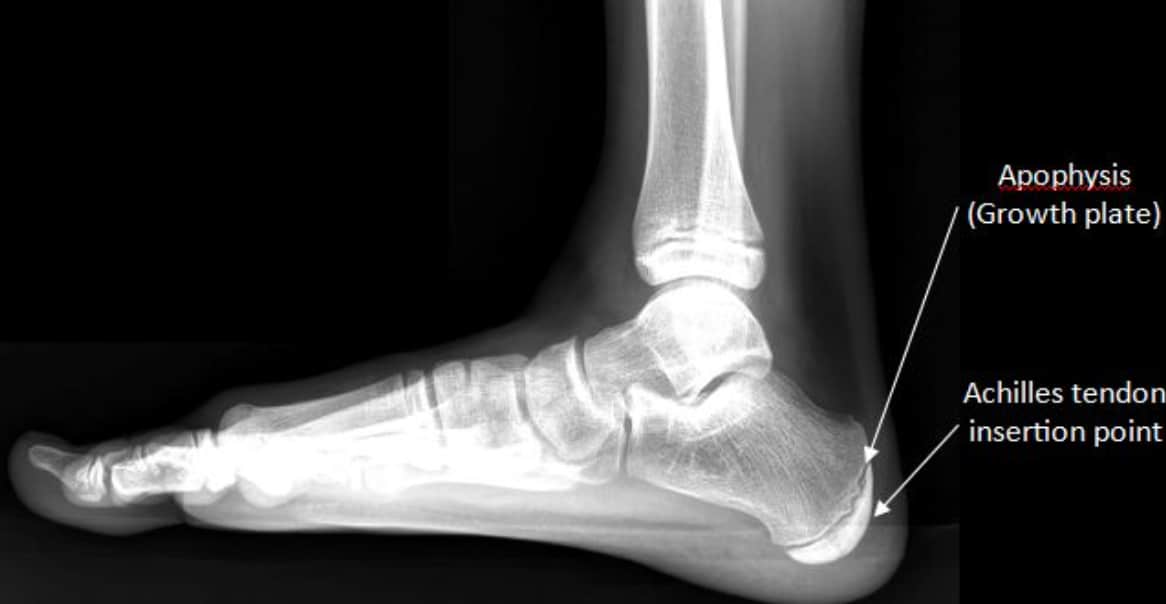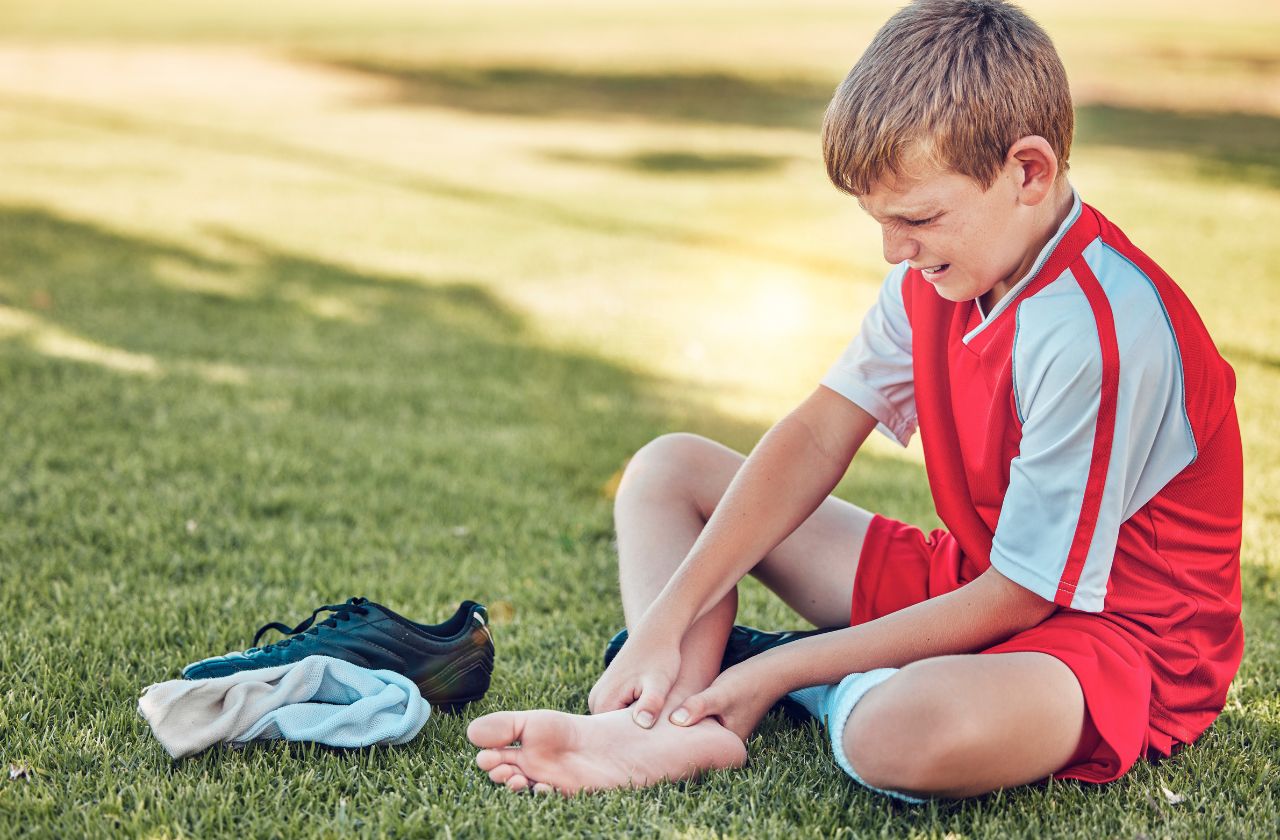Is your child limping off the field each week? Are they walking on their toes after sport? If so, they may be suffering from a condition called Severs.

Severs is the most common cause of heel pain in children aged 8-14 years. Severs Disease, also known as calcaneal apophysitis, is a common cause of heel pain in children, particularly those who are active and going through periods of rapid growth. It is not actually a disease but rather an inflammation of the growth plate in the heel bone (calcaneus), where the Achilles tendon attaches.
The heel bone (calcaneus) of children is not fully developed and contains a growth plate, an area of growing tissue near the end of a bone. During periods of rapid growth, such as puberty, the Achilles tendon may pull excessively on this growth plate, leading to irritation and inflammation.
Several factors can contribute to the development of Sever’s Disease, including:
- Overuse or repetitive stress on the heel bone from sports activities that involve running, jumping, or sudden changes in direction.
- Tight calf muscles or Achilles tendons, which increase tension on the growth plate.
- Poor footwear choices that lack adequate cushioning or support.
Symptoms:
- Heel pain, particularly during or after physical activity.
- Limping or difficulty walking, especially after periods of rest.
- Tenderness or swelling in the back of the heel.
- Discomfort or pain when squeezing the sides of the heel.
Diagnosis and Treatment:
Diagnosis of Severs Disease is typically based on the child’s medical history, physical examination, and ruling out other potential causes of heel pain. Treatment options may include:
- Rest from activities that exacerbate symptoms.
- Ice therapy to reduce inflammation and pain.
- Stretching exercises to improve flexibility in the calf muscles and Achilles tendon.
- Supportive footwear with cushioning and arch support.
- Orthotic devices to provide additional support and reduce strain on the growth plate.
- Physical therapy to address muscle imbalances and biomechanical issues contributing to heel pain.
If this sounds like your child, it is recommended to make an appointment with a Podiatrist as soon as possible. Unfortunately, this condition is something that needs to be managed as it can persist for many years if not treated.


